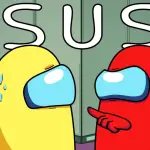Introduction: Exploring the World of Internet Slang
Welcome to the fascinating world of internet slang, where words take on new meanings and communication transcends traditional boundaries. Have you ever found yourself puzzled by acronyms like LOL or phrases like “on fleek”? Or perhaps you’ve wondered how these seemingly random combinations of letters and symbols became a language of their own.
In this blog post, we’re embarking on a journey to unravel the intricate vernacular of the web. We’ll explore the origins and evolution of internet slang, delve into its various types, and examine its profound influence on language and communication. But that’s not all – we’ll also uncover the hidden psychology behind internet slang and analyze the pros and cons of using it in our everyday conversations.
So buckle up as we navigate through this linguistic revolution together. Get ready to decode popular internet slang phrases, understand their meanings, and gain valuable insights into their cultural significance. By the end of this post, you’ll be equipped with a deeper understanding of internet slang that will empower your online interactions and keep you in sync with digital culture.
Let’s dive in!
Origins and Evolution of Internet Slang
The origins and evolution of internet slang are deeply intertwined with the rapid development of online communication platforms. From the early days of chat rooms and instant messaging to the current era of social media and memes, internet slang has constantly adapted and transformed, reflecting the dynamic nature of digital culture.
In its infancy, internet slang emerged as a way for early users to express themselves within the limitations of text-based interfaces. Acronyms like LOL (laugh out loud) and BRB (be right back) facilitated quick and efficient communication in a rapidly evolving online world. As technology advanced and social media platforms gained popularity, new forms of expression such as hashtags (#), emoticons 😊, and GIFs became integral parts of digital conversations.
The evolution of internet slang is also heavily influenced by various subcultures that developed within online communities. Internet forums dedicated to specific topics gave rise to niche terminology, while gaming communities introduced gaming-related jargon like “noob” or “gg” (good game). This blending of linguistic styles from different communities contributed to the diverse tapestry that is internet slang today.
Furthermore, popular culture has played a significant role in shaping internet slang. Memes, viral videos, and catchphrases quickly permeate online spaces, giving birth to new lexicons that reflect shared experiences or inside jokes.
As we delve deeper into understanding this fascinating phenomenon throughout this blog post, we’ll uncover more about how these linguistic innovations shaped our modern-day online interactions. So keep reading as we explore the multifaceted origins and ever-evolving nature of internet slang!
Common Types of Internet Slang
When navigating the vast landscape of internet slang, it’s crucial to understand the different types that have emerged to enrich online communication. From acronyms to abbreviations, emojis to reaction GIFs, each form of internet slang brings its own unique flavor and expression. Let’s take a closer look at some of the common types you’re likely to encounter in your digital interactions.
Acronyms and abbreviations form a central part of internet slang, allowing users to convey complex phrases or emotions in concise ways. Phrases like “LOL” (laugh out loud), “OMG” (oh my God), or “BRB” (be right back) are just a few examples that have permeated mainstream communication beyond their online origins.
Emoticons and emojis inject sentiments and nonverbal cues into text-based conversations. 😊🔥💯 They help users convey emotions ranging from happiness and excitement to sadness or even sarcasm.
Reaction GIFs offer visual responses as humorous or relatable snippets from movies, TV shows, or memes. These animated images capture specific moments that resonate with a wide audience across various situations.
Hashtags (#) are used as organizational tools but also serve as a way for users to join broader conversations on specific topics.
Additionally, there is specialized jargon within different communities, such as gamers using terms like “noob,” “pwned,” or “GG” (good game). Niche communities create their own linguistic style with inside jokes and references.
Exploring these various types of internet slang will not only help you navigate digital spaces more effectively but also enable you to engage in conversations with authenticity and adaptability. So embrace these linguistic tools as we unravel their intricacies further throughout this blog post!
The Influence of Internet Slang on Language and Communication
The influence of internet slang on language and communicationcannot be understated. As online interactions continue to shape our daily lives, this unique form of expression has not only infiltrated digital conversations but also made its mark on the broader linguistic landscape. Let’s explore how internet slang has transformed the way we communicate and how it permeates various aspects of our language.
One significant impact of internet slang is its role in fostering a sense of community and belonging. Shared slang phrases or inside jokes create a sense of camaraderie among online users, strengthening social connections across virtual spaces. This shared language allows individuals from diverse backgrounds to find common ground and build relationships based on shared experiences.
Moreover, internet slang continuously evolves and adapts to reflect societal shifts, making it a powerful tool for cultural commentary and social critique. It acts as a mirror reflecting prevailing attitudes, trends, or subversive movements within society at any given moment.
Internet slang has also influenced mainstream linguistics by introducing new words or altering existing vocabulary. Words like “selfie,” “troll,” or “viral” have made their way into everyday conversation thanks to their association with online culture.
However, it’s important to strike a balance between digital fluency and traditional forms of communication. Digital natives seamlessly navigate both realms using appropriate language codes based on context – informal in casual conversations online versus formal in professional settings offline.
As we unravel the profound influence that internet slang wields over our language use, we gain valuable insights into the ever-evolving nature of communication itself. So let’s embrace this linguistic revolution as we continue to explore the world of internet slang!
Popular Internet Slang Phrases and Their Meanings
Let’s take a deep dive into the vibrant world of popular internet slang phrases and uncover their meanings. These phrases have become an integral part of online communication and have transcended digital spaces to permeate everyday conversations. Understanding the nuances behind these expressions will help you stay in sync with today’s digital culture.
One widely used internet slang phrase is “LOL” (laugh out loud). It signifies amusement or humor in response to something funny or entertaining.
Another popular acronym is “OMG” (oh my God), which expresses surprise, excitement, or disbelief.
The phrase “ROFL” (rolling on the floor laughing) indicates extreme amusement, emphasizing that something is hilariously funny.
When you come across someone using “TBH” (to be honest), they are prefacing their sincere opinion about a topic or situation.
If you see someone employing the term “FTW” (for the win), it conveys enthusiasm, approval, or support for a particular idea, action, or outcome.
A common phrase used in online disagreements is “SMH” (shaking my head), expressing disappointment, frustration, or disbelief at someone’s actions or statements.
Additionally, there are popular expressions like “LOLZ,” a playful variation of LOL indicating exaggerated laughter; and “FOMO” (fear of missing out) referring to the feeling of anxiety when fearing one might miss out on exciting experiences others are having.
By familiarizing yourself with these popular internet slang phrases and their meanings, you’ll be able to navigate online conversations more effectively and engage with others authentically. So join us as we continue exploring this fascinating linguistic landscape!
The Psychology Behind Internet Slang
Delve into the fascinating world of internet slang as we explore the psychology behind its usage. The adoption and widespread use of internet slang go far beyond linguistic trends – it taps into basic human psychology, social dynamics, and the desire for connection within online communities.
One key aspect of the psychology behind internet slang is its ability to foster a sense of identity and belonging. People often adopt specific slangs or jargon associated with their interests or communities to feel part of something larger. This shared language creates an instant bond and strengthens group cohesion.
Moreover, using internet slang allows individuals to project their desired self-image or persona. It can serve as a form of self-expression, enabling users to present themselves in unique ways that align with their online personas.
Another psychological driver behind the popularity of internet slang is the need for efficient and concise communication in today’s fast-paced digital environment. Internet slang provides quick shortcuts that convey complex thoughts or emotions succinctly, allowing for rapid exchanges without losing meaning.
The anonymity and disinhibition afforded by online interactions play a role in unleashing creativity within language use. People are more willing to experiment with language forms when not constrained by face-to-face interactions, leading to the creation of new words, phrases, and idioms unique to digital spaces.
Understanding the psychology behind internet slang enables us to appreciate how it fulfills deep-rooted human needs for connection, identity expression, efficiency, and creative expression within digital realms. So join us as we continue exploring this captivating dimension that merges language and human behavior!
Pros and Cons of Using Internet Slang
Let’s weigh the pros and cons of using internet slang, considering its impact on communication and social interactions. While internet slang has become an integral part of our online conversations, it’s essential to understand both the advantages and disadvantages that come with its usage.
One significant advantage of internet slang is its ability to enhance digital communication efficiency. Slang terms often convey complex thoughts or emotions concisely, saving time and allowing for quick exchanges in fast-paced online environments.
Internet slang fosters a sense of belonging within online communities. By using shared slangs or jargon, individuals can connect with others who share similar interests or experiences, forging relationships in virtual spaces.
Moreover, internet slang injects personality into digital conversations. It adds a layer of playfulness and informality that can make interactions more engaging and entertaining.
However, it is crucial to be mindful of potential drawbacks associated with excessive use of internet slang. Overreliance on acronyms or abbreviations can lead to miscommunication when not everyone shares the same understanding or familiarity with certain phrases.
Additionally, reliance on internet slang may hinder effective offline communication skills if individuals become accustomed to using informal language codes exclusively within online spaces.
Another consideration is how certain slangs may perpetuate stereotypes or offensive language if used irresponsibly. It is important to strike a balance between creative expression and sensitivity towards diverse audiences when utilizing these linguistic tools.
By weighing these pros and cons conscientiously, we can harness the power of internet slang while maintaining effective communication across various settings – both offline and online. So let’s navigate this linguistic landscape mindfully as we embrace the benefits while staying attuned to potential challenges!
Conclusion: Embracing the Linguistic Revolution
As we reach the conclusion of our exploration into internet slang and its captivating world, it is evident that this linguistic revolution has transformed the way we communicate in the digital age. From its origins and evolution to its influence on language and social dynamics, internet slang has become an integral part of our online interactions.
Throughout this blog post, we’ve uncovered the various types of internet slang, delved into their meanings, and explored their impact on language and communication. We’ve also examined the psychology behind internet slang, understanding how it satisfies our innate human needs for connection and self-expression.
While there are pros and cons to consider when using internet slang, being mindful of its usage allows us to navigate online conversations with authenticity while maintaining effective communication across different contexts. By embracing both traditional forms of language use and digital fluency with slangs at our disposal, we can adapt to various platforms while remaining inclusive.
It’s important to remember that internet slang continues to evolve rapidly as technology advances and digital cultures shift. Staying curious about emerging slangs ensures that we stay current with evolving trends in online discourse.
So whether you’re a seasoned netizen or just beginning your journey into online communities, embracing this linguistic revolution can enhance your connectivity within digital spaces. Keep exploring new slangs as they arise while staying respectful toward others’ preferences in communication styles.
Join us in embracing the richness of internet slang! Start incorporating these expressions into your online interactions authentically yet responsibly for a more engaging presence across various platforms.
Let’s continue unraveling this evolving vernacular together – one acronym or emoji at a time!








